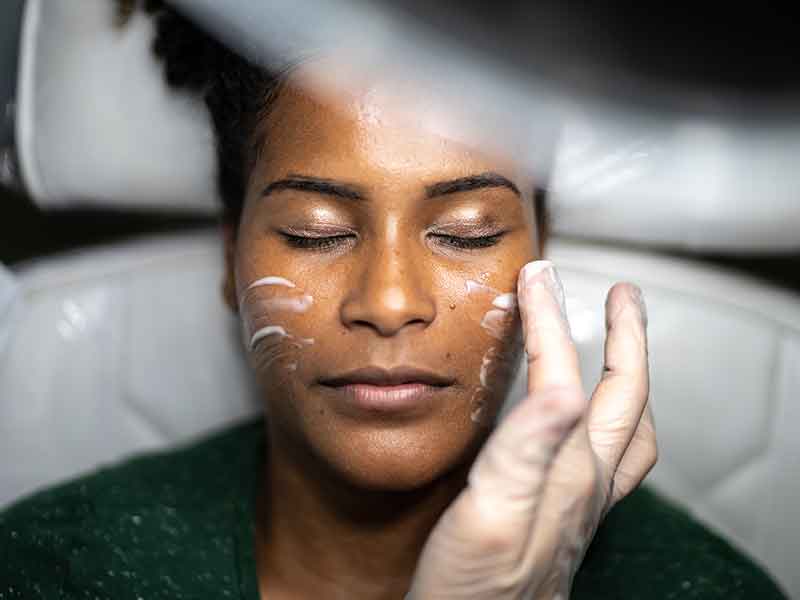
This is a question we get asked often!
We define “skin of color” using the Skin of Color Society “SOC” guidelines as those of Asian, Hispanic/Latino, Africa, Native American, Pacific Island descent, and mixed ancestry.
The Answer is … YES!!!
Exfoliating agents such as professional chemical peels, enzymes and at-home skin care treatments are a great option in treating hyperpigmentation for all skin colors, especially darker skin tones. Most quasi-medical or laser treatments are too invasive for skin of color and actually can cause more hyperpigmentation in the end.
Chemical peels are the best and safest way to reduce brown spots and hyperpigmentation in darker skin tones. However, treating SOC with chemical peels without a pre- and post-treatment regimen, and chemical peels that are too deep or done too frequently can potentially cause hyperpigmentation (brown spots) or hypopigmentation (white spots).
Chemical peels are great for Post Inflammatory Hyperpigmentation (PIH), Melasma and some brown spots. The darker skin you have, the more prone you are to these conditions. Post inflammatory hyperpigmentation can a be caused by acne/pimples, burns, scratches, excessive dryness and other minor skin traumas, as well as chemical peels and different types of lasers.
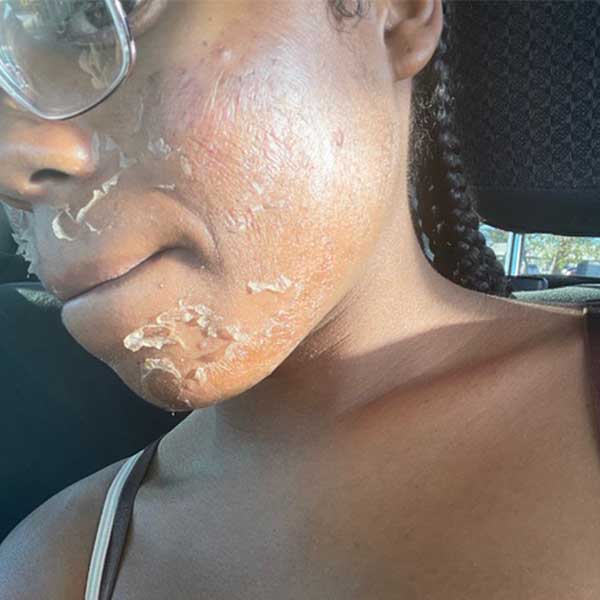
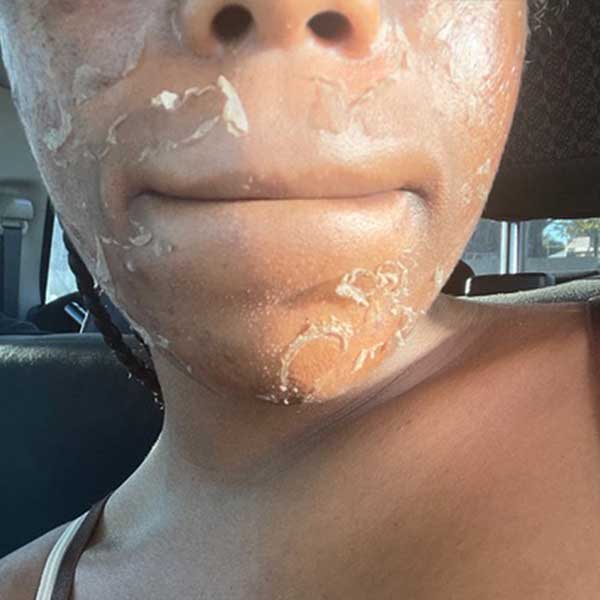
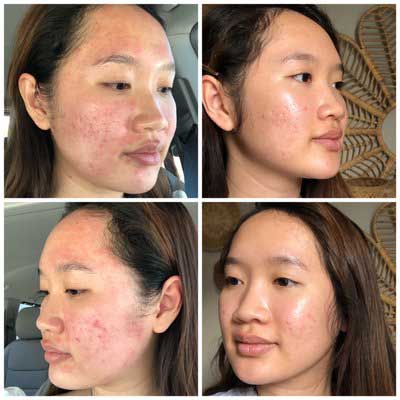
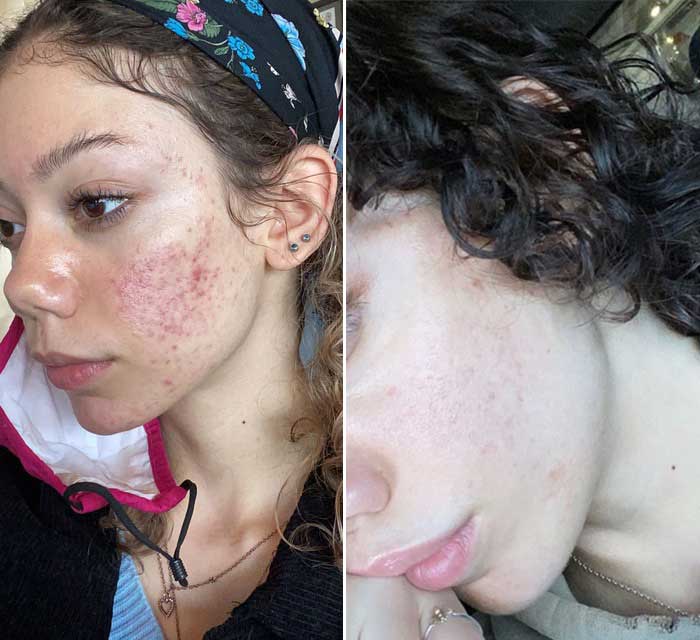
Melasma (seen mostly in women) is usually caused from hormone (birth control pills + pregnancy) shifts or imbalances and inflammation/sun exposure. No matter what your skin color is, always start conservatively with any skin-care treatment or product. It is easier to increase the strength gradually than to begin too aggressively and have to reverse post-inflammatory hyperpigmentation. We call these progressive peels.
Prepping with a pre-home care regimen before a peel is an absolute must for skin of color. Gradually and gently preparing the skin will give it time to adjust and avoid post-peel complications. It can be as simple as having a gentle wash with a low percentage alpha hydroxy acid and an quality SPF. Sunblock / sunscreen is not all created the same and it is not as simple as purchasing a “45SPF”.
Occasionally, we recommend skin lighteners too, depending upon the severity of acne and hyperpigmentation. However, lightening agents, especially those containing prescription and non-prescription hydroquinone (HQ), can contain thick, pore-clogging ingredients that provoke acne.
Rather than overexposing skin with a high percentage chemical peel, I suggest starting with progressive peels. Progressive peels are superficial and do not cause immediate exfoliation. They are also good for preparing for more aggressive, medium depth peels with mild sloughing. Progressive peels are usually performed every two weeks, but I advise once a month in skin of color clients to avoid over-stimulating the skin and potentially causing hyperpigmentation.
I always send my clients home with 1% over-the–counter (OTC) hydrocortisone lotion to apply post-peel three to five days as an insurance policy to help stave off hyperpigmentation. It helps to reduce inflammation, which can trigger hyperpigmentation and acne breakouts. It also makes for a good spot treatment for acne.
IMPORTANT NOTE: Whether hydroquinone, also known as bleaching cream, is safe for the skin is a serious and important debate. Over time, hydroquinone can become less effective and cause ochronosis (skin darkening), especially in darker skin tones. Although rare, I do recommend 2% hydroquinone in my practice, but never as a long-term indefinite part of anyone’s, especially skin of color clients, skin-care routines. I use other more “natural” lightening agents that typically take longer to see results, but are safer and tend to be longer lasting.
Hydrocortisone (not the over-the-counter ones at the drugstore) is not to be used for long periods of time. It can thin the skin and exacerbate skin disorders like acne, rosacea, and perioral dermatitis. With mild, progressive peels, this light cosmeceutical formula of Hydrocortisone can sometimes double as a moisturizer and temporarily help hydrate post-peel dry and acne-prone skin.


